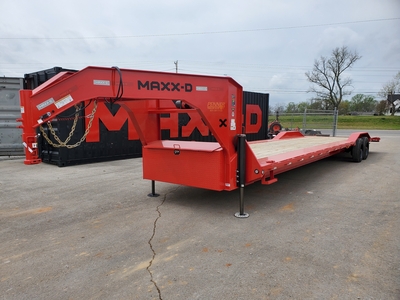When it comes to towing trailers—whether for RVs, boats, or heavy equipment—knowing your vehicle’s towing capacity is essential for safe and effective travel. Towing beyond your vehicle’s capacity can put undue strain on your engine, brakes, and transmission, and it can compromise your safety on the road. Here, we’ll break down the basics of towing capacity, explain each key term, and walk you through the steps to calculate your vehicle’s towing limits.
Understanding Key Towing Terms
Before calculating your towing capacity, it’s important to understand some fundamental towing terminology:
- Gross Vehicle Weight Rating (GVWR): This is the maximum weight your vehicle can handle, including the vehicle itself, passengers, cargo, and the tongue weight of the trailer.
- The Gross Trailer Weight (GTW) refers to the total weight of the trailer, including all its contents. Determining if your vehicle can safely tow your trailer is crucial.
- Gross Combined Weight Rating (GCWR): The maximum weight limit for your vehicle and trailer combined. This includes the weight of the vehicle, trailer, passengers, and cargo.
- Tongue Weight (TW): The downward force exerted by the trailer on the hitch, typically 10-15% of the total trailer weight. It’s an important factor, as too much tongue weight can strain the rear axle and reduce control, while too little can lead to swaying.
- Payload Capacity: This refers to the weight limit for cargo, passengers, and other items in your vehicle, excluding any trailer weight. It’s key to remember that the payload limit affects the total weight your vehicle can tow.
Step-by-Step Guide to Calculating Towing Capacity
Now that we know the key terms, let’s look at the steps involved in determining your vehicle’s towing capacity.
Step 1: Check the vehicle’s GCWR
The Gross Combined Weight Rating (GCWR) is the total weight limit for the vehicle and trailer combined, set by the vehicle’s manufacturer. You can often find this information in your vehicle’s owner’s manual, inside the driver’s side door, or on the manufacturer’s website.
Step 2: Determine Your Vehicle’s Curb Weight
Curb weight refers to the weight of your vehicle without any passengers or cargo but with all fluids (fuel, oil, and coolant) fully topped up. You can usually find this weight on a sticker inside the driver’s door or in the owner’s manual.
Step 3: Calculate the total weight of passengers, cargo, and gear.
Add up the weight of all passengers, cargo, and gear you’ll be carrying in the vehicle. This includes luggage, equipment, and any other items. If you’re towing items like camping gear or tools, remember that this weight will count against your vehicle’s payload capacity and, by extension, its towing capacity.
Step 4: Subtract the curb weight and additional weight from the GCWR.
Now, subtract the curb weight of the vehicle and the weight of passengers, cargo, and gear from the GCWR. This calculation gives you the maximum towing capacity of your vehicle.
Formula: Towing Capacity = GCWR − (Curb Weight + Passengers and Cargo Weight)
Example Calculation:
Suppose your vehicle has a GCWR of 15,000 pounds, a curb weight of 5,000 pounds, 500 pounds of passengers, and 200 pounds of cargo. The towing capacity is calculated as follows:
Towing Capacity = 15,000 − (5,000 + 500 + 200 ) = 9,300 pounds
Additional Considerations
- Check the Hitch Rating: Even if your vehicle has the capacity to tow a certain weight, make sure your hitch and towing equipment are rated for that weight as well. Hitches come with their own weight ratings, which should match or exceed your calculated towing capacity.
- Balance Tongue Weight: Aim to keep the tongue weight around 10-15% of the total trailer weight. Too little tongue weight can make the trailer sway, while too much can lead to vehicle instability.
- Brake Requirements: In many regions, trailers over a certain weight require their own braking systems. Check local regulations to see if trailer brakes are required based on your towing setup.
- Remember Aerodynamics and Road Conditions: While your vehicle may technically be able to handle a certain weight, factors like wind resistance and steep inclines can affect towing performance. Larger trailers create more wind resistance, and even a slight breeze can require extra power to maintain speed. Adjust your driving and expectations accordingly to protect your vehicle and improve safety.
Using manufacturer-specified towing guides
Most vehicle manufacturers provide a towing guide that includes recommended towing capacities based on different setups and configurations. These guides can be helpful for determining how towing affects your vehicle’s performance and fuel efficiency.
Conclusion
Calculating towing capacity is a must for anyone planning to tow a trailer, as it helps ensure a safer, more efficient experience. You can make an informed decision about your vehicle’s capacity to handle the load by understanding and applying the concepts of GCWR, curb weight, payload, and tongue weight.
Always consult your vehicle’s manual and consider external factors, such as road conditions, trailer design, and weather, which can impact your vehicle’s towing performance. When in doubt, opt for a lighter load or upgrade your vehicle’s towing equipment to ensure a stable and enjoyable towing experience. Safe travels!


